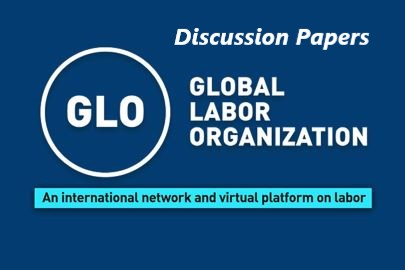A new GLO Discussion Paper provides a theoretical framework to show that offshoring to a different time zone is beneficial even when the complexity of stages of production varies.
The Global Labor Organization (GLO) is an independent, non-partisan and non-governmental organization that functions as an international network and virtual platform to stimulate global research, debate and collaboration.

GLO Discussion Paper No. 827, 2021
Variation in labour skills and offshoring across time zones – Download PDF
by Prasad, Alaka Shree & Mandal, Biswajit
GLO Fellow Biswajit Mandal
Author Abstract: The paper extends Dei (2010) to check the role of time zone difference on offshoring of service tasks when the quality of workers varies between the partner countries. We frame a model where partner countries are located in non-overlapping time zones, and the skill level of the partner country workers is lower than that of the domestic workers. In our model, service production is divided into two sequential stages, and output is a supermodular function of the skill of workers and time. The problem of the service producers is to choose between domestic production and offshoring. Domestic production employs high-quality skilled labours but the time management is inefficient. On the other hand, offshoring to a non-overlapping time zone helps a firm to work round the clock, but the low quality of skilled labour lowers the output, though they cost less. In such a framework, we check under what conditions offshoring is beneficial. The analysis provides a condition where firms decide to offshore through a tradeoff between time and skill. We observe that the lesser of 24 hours domestic production use, the lower will be the threshold of acceptable skill level. Results show that offshoring to a different time zone is beneficial even when the complexity of stages of production vary. However, it is observed that only the relatively less-critical task is offshored. We further observe that availability of domestic lowquality labour does not benefit the firm, but foreign low-quality labour can be beneficially utilized through time-zone exploitation.

GLO Discussion Papers are research and policy papers of the GLO Network which are widely circulated to encourage discussion. Provided in cooperation with EconStor, a service of the ZBW – Leibniz Information Centre for Economics, GLO Discussion Papers are among others listed in RePEc (see IDEAS, EconPapers). Complete list of all GLO DPs – downloadable for free.
Ends;

